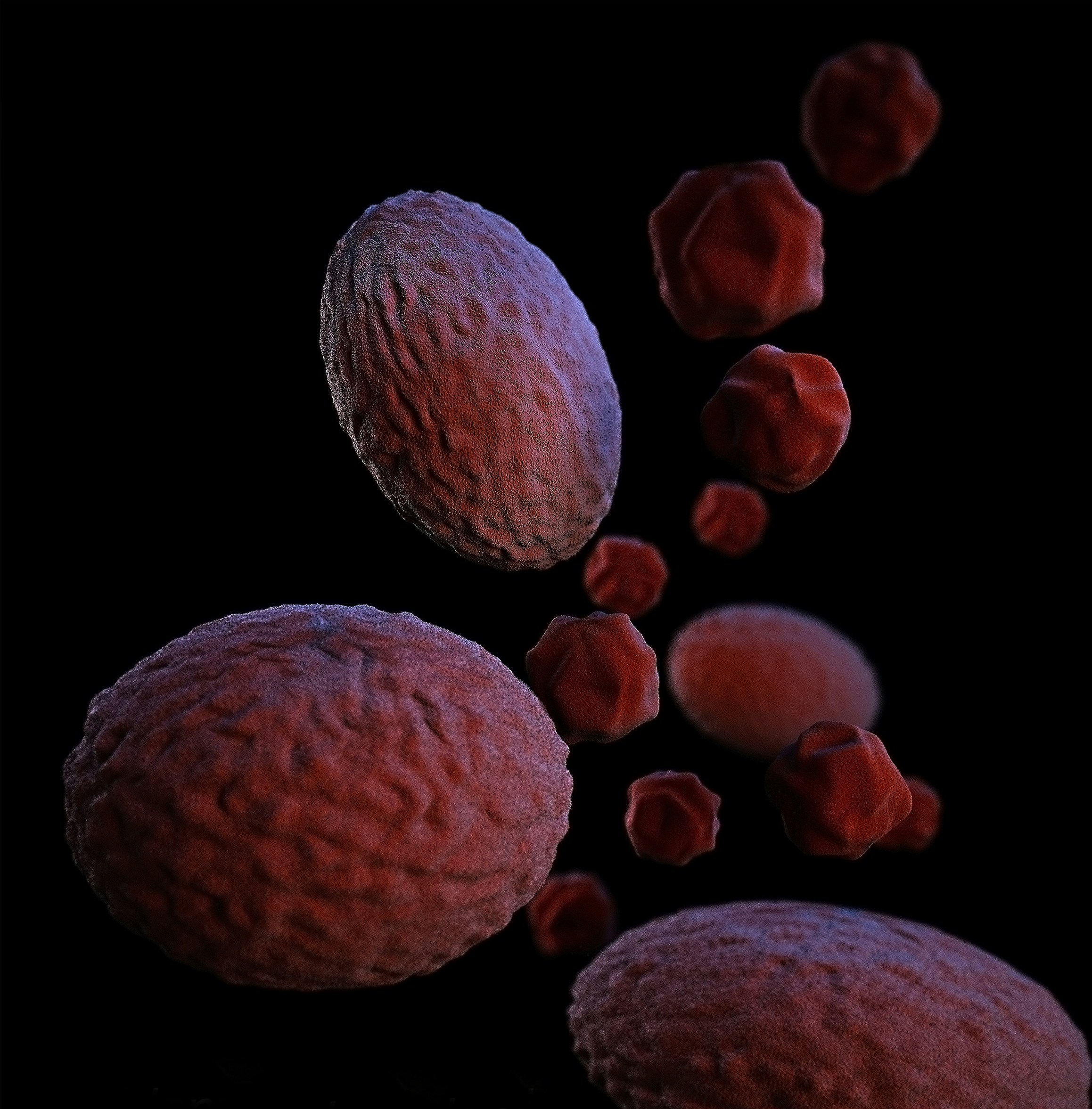Imagine the last time you went to the bathroom and were taken aback by an unpleasant odor coming from your urine. Before you panic, it’s important to understand that foul-smelling urine can be caused by a variety of factors, both harmless and more concerning. In this article, we’ll explore the potential reasons behind that unwelcome scent and discuss when it might be time to seek medical advice. So take a deep breath, relax, and let’s get to the bottom of what your foul-smelling urine might be trying to tell you.
Understanding Urine Odor
Normal urine smell
Normal urine usually has a mild, slightly sweet smell. It’s important to note that everyone’s urine may have a slightly different scent due to variations in diet, hydration levels, and overall health. Generally, the smell of urine is not a cause for concern unless it becomes unusually strong, offensive, or foul-smelling.
Role of diet in urine odor
What you eat and drink can have an impact on the smell of your urine. Certain foods, such as asparagus, garlic, onions, and spices, can cause your urine to have a stronger odor. Additionally, consuming certain beverages like coffee or alcohol can also affect the smell. However, these changes in urine odor are typically temporary and not indicative of an underlying medical condition.
Physical factors affecting urine smell
Apart from diet, there are several physical factors that can influence the smell of your urine. These include the concentration of your urine, which can be affected by dehydration or excessive fluid intake. Additionally, certain medications, supplements, and medical conditions can also contribute to changes in urine odor. It’s important to consider these factors when evaluating the smell of your urine and to consult a healthcare professional if you have concerns.
Bacterial Infections Causing Foul-Smelling Urine
Urinary tract infection (UTI)
One common cause of foul-smelling urine is a urinary tract infection (UTI). UTIs occur when bacteria enter the urethra and multiply in the urinary tract. Along with a strong, unpleasant odor, individuals with a UTI may experience symptoms such as burning during urination, frequent urination, and cloudy or bloody urine. Prompt medical attention and appropriate antibiotic treatment are vital to resolve UTIs and prevent complications.
Bladder infection
A bladder infection, also known as cystitis, is another bacterial infection that can result in foul-smelling urine. The bacteria typically responsible for bladder infections are Escherichia coli (E. coli). In addition to an unpleasant odor, individuals with a bladder infection may experience lower abdominal pain, urgency to urinate, and a frequent need to urinate in small amounts. Treatment involves antibiotics prescribed by a healthcare professional to eliminate the infection.
Kidney infection
When bacteria spread from the bladder to the kidneys, it can lead to a kidney infection or pyelonephritis. Along with a strong, unpleasant urine odor, individuals with a kidney infection may experience high fever, severe back pain, nausea, and vomiting. These symptoms require immediate medical attention as kidney infections can be serious and may lead to complications if left untreated. Treatment involves antibiotics and may require hospitalization in severe cases.
Sexually Transmitted Diseases And Odorous Urine
Gonorrhea
Gonorrhea is a sexually transmitted infection caused by the bacterium Neisseria gonorrhoeae. While it is primarily known for causing symptoms such as painful urination and unusual discharge, it can also contribute to changes in urine odor. Foul-smelling urine, along with other symptoms, should prompt individuals to seek medical testing and treatment to prevent further complications and transmission of the infection.
Chlamydia
Chlamydia, caused by the bacterium Chlamydia trachomatis, is another sexually transmitted infection that can cause changes in urine odor. While it is often asymptomatic, some individuals may experience symptoms such as pain during urination, abnormal discharge, and pelvic pain. Prompt medical testing, diagnosis, and treatment are crucial to prevent the spread of chlamydia and potential complications.
Trichomoniasis
Trichomoniasis is a sexually transmitted infection caused by the parasite Trichomonas vaginalis. In addition to symptoms such as vaginal itching, discharge, and discomfort during intercourse, trichomoniasis can also result in foul-smelling urine. Both sexual partners need to seek medical attention, get tested, and receive appropriate treatment to eliminate the infection and prevent recurrence.
Medical Conditions Related to Foul-Smelling Urine
Diabetes
Uncontrolled or poorly managed diabetes can lead to a condition called diabetic ketoacidosis, which can cause the urine to have a strong, sweet, fruity smell. This odor is due to the presence of ketones, which are produced when the body breaks down fat for energy instead of using glucose properly. Other symptoms of diabetic ketoacidosis include frequent urination, increased thirst, fatigue, and nausea. It is crucial for individuals with diabetes to manage their blood sugar levels properly to prevent complications.
Hyperglycemia
Hyperglycemia, or high blood sugar, can also contribute to changes in urine odor. When blood sugar levels are consistently elevated, the kidneys may remove excess glucose from the body through the urine. This can result in sweet-smelling urine. Individuals with diabetes or those at risk should monitor their blood sugar levels regularly and follow their healthcare provider’s recommendations to maintain optimal control.
Liver diseases and hepatitis
Certain liver diseases, such as cirrhosis or hepatitis, can affect the body’s metabolism and lead to changes in urine odor. In conditions like these, the liver may not be able to process waste products properly, leading to an accumulation of certain substances in the urine. This can result in a foul or ammonia-like urine smell. Individuals with liver diseases should work closely with their healthcare provider to manage their condition and address any concerning symptoms.
Medications and Foul-Smelling Urine
Certain antibiotics
Some antibiotics, such as amoxicillin or metronidazole, can alter the odor of urine. This is usually a temporary side effect of the medication and should not cause concern unless accompanied by other symptoms or signs of an allergic reaction. If you are taking antibiotics and notice a significant change in urine odor, it is advisable to consult your healthcare provider.
Chemotherapeutic drugs
Chemotherapy medications can also affect the smell of urine. These drugs are powerful and can have various effects on the body, including changes in the urinary system. While the specific impact may vary depending on the type and dosage of chemotherapy drugs used, it is important for individuals undergoing chemotherapy to discuss any concerns about urine odor with their oncologist or healthcare team.
Multivitamins and dietary supplements
Certain multivitamins and dietary supplements, particularly those containing B vitamins, can result in changes to urine odor. B vitamins, such as riboflavin (vitamin B2), can cause urine to have a bright yellow color and a distinct odor. This is a normal reaction and not typically a cause for concern. If you have questions about the effects of specific supplements or vitamins on urine odor, it is best to consult with your healthcare provider or a registered dietitian.
Foul-Smelling Urine in Children
Metabolic disorders
In some cases, foul-smelling urine in children can be associated with metabolic disorders such as maple syrup urine disease or phenylketonuria (PKU). These are genetic conditions that affect the body’s ability to break down certain amino acids. Without appropriate treatment and management, these disorders can lead to serious health problems. If you notice persistent foul-smelling urine in your child, it is essential to consult their pediatrician for a thorough evaluation and appropriate testing.
Dehydration in toddlers and infants
Dehydration can occur in children, especially in toddlers and infants who may be unable to communicate their thirst effectively. When the body is dehydrated, urine becomes more concentrated, leading to a stronger odor. Other signs of dehydration in children include dry lips and mouth, fewer wet diapers, and irritability. If you suspect your child is dehydrated, it’s important to offer them fluids promptly and seek medical attention if symptoms persist or worsen.
Urinary reflux in children
Urinary reflux, also known as vesicoureteral reflux, is a condition in which urine flows backward from the bladder into the kidneys. Apart from increasing the risk of urinary tract infections, urinary reflux can also contribute to changes in urine odor. Children with urinary reflux may have foul-smelling urine, recurrent UTIs, abdominal pain, or urinary urgency. Prompt diagnosis and appropriate management are crucial to prevent complications and preserve kidney health.
Dehydration as a Cause for Foul-Smelling Urine
Symptoms of dehydration
Dehydration occurs when the body loses more fluids than it takes in. Along with changes in urine odor, other symptoms of dehydration include increased thirst, dry mouth, dark-colored urine, fatigue, dizziness, and dry skin. Severe dehydration can be a medical emergency and requires immediate medical attention. If you suspect you are dehydrated, it is important to drink plenty of fluids, especially water, and consider seeking medical advice if symptoms persist or worsen.
How dehydration affects urine smell
When the body is dehydrated, the urine becomes more concentrated, leading to a stronger and more pungent odor. The kidneys work to conserve water by producing less urine, resulting in a higher concentration of waste products in the urine. This can give rise to an intense ammonia-like smell. Rehydrating the body with adequate fluids helps dilute the urine and reduce the foul odor.
Treatment for dehydration
Treating dehydration involves replenishing lost fluids in the body. In mild cases, drinking water or electrolyte-rich beverages like sports drinks can help restore hydration. For more severe cases, medical attention may be necessary, and intravenous fluids may be administered. To prevent dehydration, it is important to drink enough fluids daily, especially during periods of increased activity, in hot weather, or when experiencing illness with symptoms like vomiting or diarrhea.
Foul-Smelling Urine in Pregnancy
Hormonal changes affecting urine odor
During pregnancy, hormonal changes can have an impact on various aspects of the body, including urine odor. Some pregnant individuals may notice a different, stronger smell to their urine. This can be attributed to hormonal fluctuations and changes in the body’s metabolism. While this change in urine odor is generally considered normal, it is always advised to discuss any unusual or concerning symptoms with a healthcare provider.
Pregnancy-related UTI
Pregnancy increases the risk of developing urinary tract infections (UTIs) due to changes in hormone levels and the physical changes in the urinary system. Along with other symptoms like pain or discomfort during urination and urinary urgency, a foul or strong-smelling urine odor can indicate the presence of a UTI. Pregnant individuals experiencing these symptoms should seek prompt medical evaluation and treatment to protect their health and the well-being of their unborn child.
Pre-eclampsia and urine odor
Pre-eclampsia is a serious condition characterized by high blood pressure and organ damage, typically occurring after the 20th week of pregnancy. While foul-smelling urine is not a defining symptom of pre-eclampsia, it is one of the signs that may indicate the need for further medical evaluation. Other symptoms of pre-eclampsia include swelling of the hands and face, severe headaches, vision changes, and abdominal pain. If you are pregnant and experience any concerning symptoms, it is important to seek immediate medical attention.
Diagnostic Procedures for Odorous Urine
Urinalysis
Urinalysis is a common diagnostic procedure used to detect and diagnose various urinary conditions, including infections and metabolic disorders. It involves analyzing a urine sample, which assesses factors such as the color, appearance, pH level, presence of bacteria or other substances, and odor. Urinalysis can provide valuable information to healthcare providers in determining the cause of foul-smelling urine and guiding further diagnostic tests or treatment.
Abdominal ultrasound
An abdominal ultrasound is a non-invasive imaging test that uses sound waves to create images of the abdominal area, including the kidneys and bladder. It can help identify any structural abnormalities, such as kidney stones, tumors, or enlargement, which may contribute to changes in urine odor. Abdominal ultrasound is a valuable tool in diagnosing and monitoring various urinary conditions.
Cystoscopy
Cystoscopy is a procedure involving the insertion of a thin, flexible tube with a camera into the urethra and bladder to visually examine the urinary tract. It can help identify any abnormalities, such as inflammation, tumors, or strictures, that may be causing foul-smelling urine. Cystoscopy is typically performed by a urologist and may be recommended if other diagnostic tests do not provide conclusive results.
Treatment and Prevention of Foul-Smelling Urine
Hydration
Maintaining proper hydration is crucial in preventing and managing various causes of foul-smelling urine. Drinking an adequate amount of water and fluids throughout the day helps dilute the urine, flush out toxins, and maintain optimal urinary system function. It is advisable to drink at least eight glasses of water per day, or more depending on individual needs and activity levels.
Appropriate medication
Treatment for foul-smelling urine depends on the underlying cause. In cases of bacterial infections, appropriate antibiotics are prescribed to eliminate the infection and resolve associated symptoms. For individuals with specific medical conditions or medication-related odor changes, the healthcare provider may adjust medications or recommend alternative treatments to address the issue. It is important to follow the prescribed treatment plan and seek medical guidance for optimal management.
Dietary changes
In some cases, modifying your diet can help improve the smell of your urine. Avoiding foods and beverages that are known to cause strong odors, such as asparagus or certain spices, can help reduce the intensity of the smell. Opting for a balanced and nutritious diet, rich in fruits, vegetables, and whole grains, can contribute to overall urinary health. Working with a registered dietitian may provide additional guidance on dietary modifications to support healthy urine odor.



